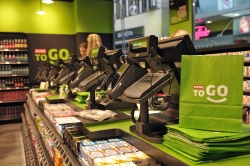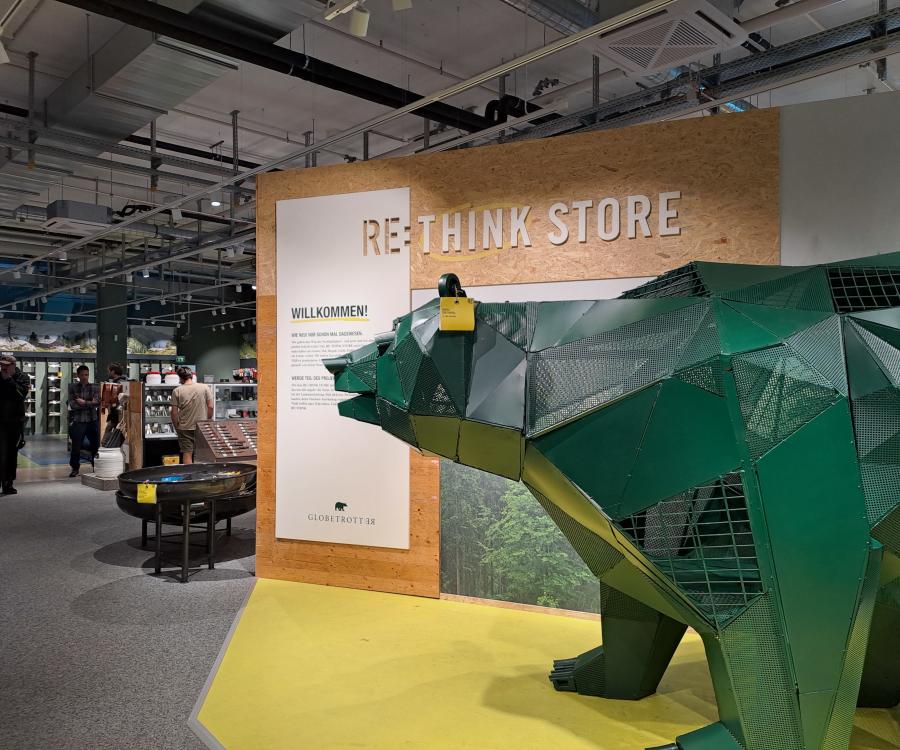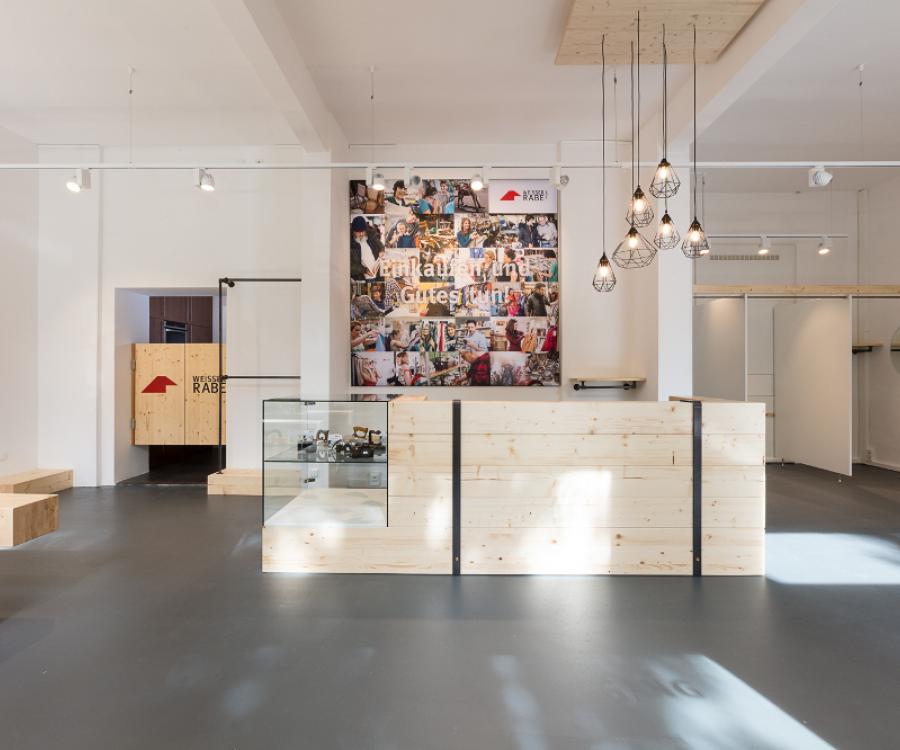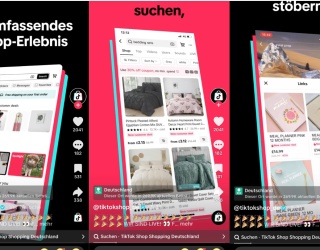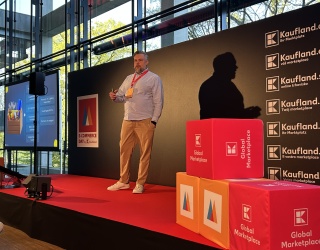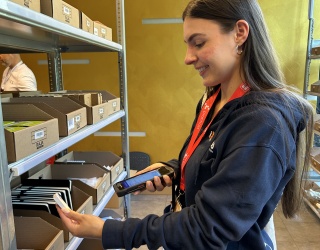To keep up with the ever more powerful competition from online retailers, brick-and-mortar stores have to turn shopping into an adventure for the customer again – this is the mantra that storeowners as well as shopfitters are currently increasingly live by. This is also true when it comes to luxury items or new technical gadgets. Aside from that, there is yet another trend during these hectic times: customers want to spend as little time as possible to get their basic shopping done. This is why for years more and more retailers have tried their hand at a new shop concept and open up ”pared down“ stores – the so-called convenience stores.
Adapting to social trends has always been essential for survival for retail. To stay competitive these days, convenience is becoming ever more important. Increased mobility, a population that is getting older, more working women, longer working hours and the considerable increase in single households are irreversible developments retail has to adjust to.
Large retailers spring into action
Since the demand for these offers continues to increase, the big players in the industry sector such as REWE (REWE to go) or the Dutch grocer Albert Heijn, which also does business in Germany since last year with special “to go” stores, also increasingly try out the concept. Since 2009, Valora Retail also operates special convenience stores in Germany under the brand name avec.
The focus with convenience choices lies mostly in the grocery area. For the sake of quick shopping options, most stores however also offer a smaller variety of non-food items. At this point, product choices range from fresh fruits and vegetables to frozen foods, dairy products, fresh bakery products as well as beverages all the way to cosmetic products and office supplies. In addition, many shops also invite their customers to have a quick bite at their Bistro.
New locations, new target groups
Retailers tap new, centrally located locations with these convenience stores and offer customers an alternative to a trip to the “big” supermarket. Thus shopping on the go works quickly and conveniently in between, whether it is during shopping, on your lunch hour or on the way home. The concept of the stores is also reflected in the site selection: REWE opened up one of its first stores of his convenience subsidiary at the Cologne Central Train Station, one of the most frequented traffic junctions in Germany, where tens of thousands of travelers and commuters are passing through on a daily basis. Many people use the waiting time for their connecting train for instance to quickly run some errands.
It gets even more convenient – delivery services are expanding considerably
The main reason for the success of convenience stores is the quick and easy supply of groceries and convenience products. And this success is also reflected in the market figures. According to information by the Cologne Trade Research Institute (IfH), the market for gastronomic services currently has a total market volume of 86.3 billion Euros (2012) and has significantly grown between 2000 and 2012 with an annual nominal growth of 1.6 percent.
However, there are strong distinctions between the segments. Everyday shopping under the convenience aspect is the one side and becomes more and more differentiated, whereas the traditional convenience food services have clearly slowed down their market growth. Pizza and other delivery services see particularly high growth rates right now, driven by delivery platforms. Quick ordering via Smartphone app in particular turns out to be a driver – after all, nothing spells more convenience than ordering food and not even having to get up from your couch.
Younger people in particular appreciate the convenience aspect
There are currently just under 50,000 companies in Germany in the convenience segment, of which 2,550 are self-service restaurants or fast food establishments, respectively (5.1 percent), which make up a percentage of 21 percent of the market volume in the convenience gastronomy sector. The continued popularity of fast food restaurants results especially from functional aspects such as speed (86 percent) and calculability (”you know what you are going to get”; 70 percent). Most consumers however also simply just like the taste of fast food (70 percent; 82 percent of the younger segment). Two out of three Germans are also convinced that the quality of fast food is no worse than in the overall gastronomy sector.
Price is not the most important aspect
Long opening hours and the chance to buy items you want quickly and spontaneously are the basic prerequisites for the success of a convenience store. It is particularly important for quick purchases that the customer is able to quickly find his/her way around the shop and is also able to pay quickly and easily. The limited product choices meet this demand, since customers do not have to choose between a variety of similar products.
Impatient customers ensure profit for retailers
Generally, customers are willing to pay more for quick purchases. The average length of stay in convenience stores is brief. The convenience customer perceives these time savings as so fundamental that he/she is willing to accept a distinctly higher price point. Unlike with weekly shopping trips where variety and price are important shopping criteria, convenience customers are clearly less price conscious — and thus bestow retailers with great profit margins. A Lekkerland study already confirmed this in 2007. Back then, convenience store shoppers already accepted a markup of 22 percent compared to the traditional supermarket.
Benefits on both sides
In any case, convenience is one of the most important trends in retail. What should also be considered here is the fact that the convenience customers perceive is often actually also an increase in convenience for retailers. Customers need to weigh fruits and vegetables on their own, which means the store does not have to employ an associate for this task. The self-checkout trend also helps retailers to save labor costs and time. The customer on the other hand gets the sense that he/she is entirely able to schedule his/her time during his/her store visit and is not subject to long lines or slow cashiers. What is clear is that the convenience trend is also going to challenge retailers in the future – but with the right store concept, retailers as well as customers can benefit from this social trend.
Daniel Stöter; iXtenso.com

